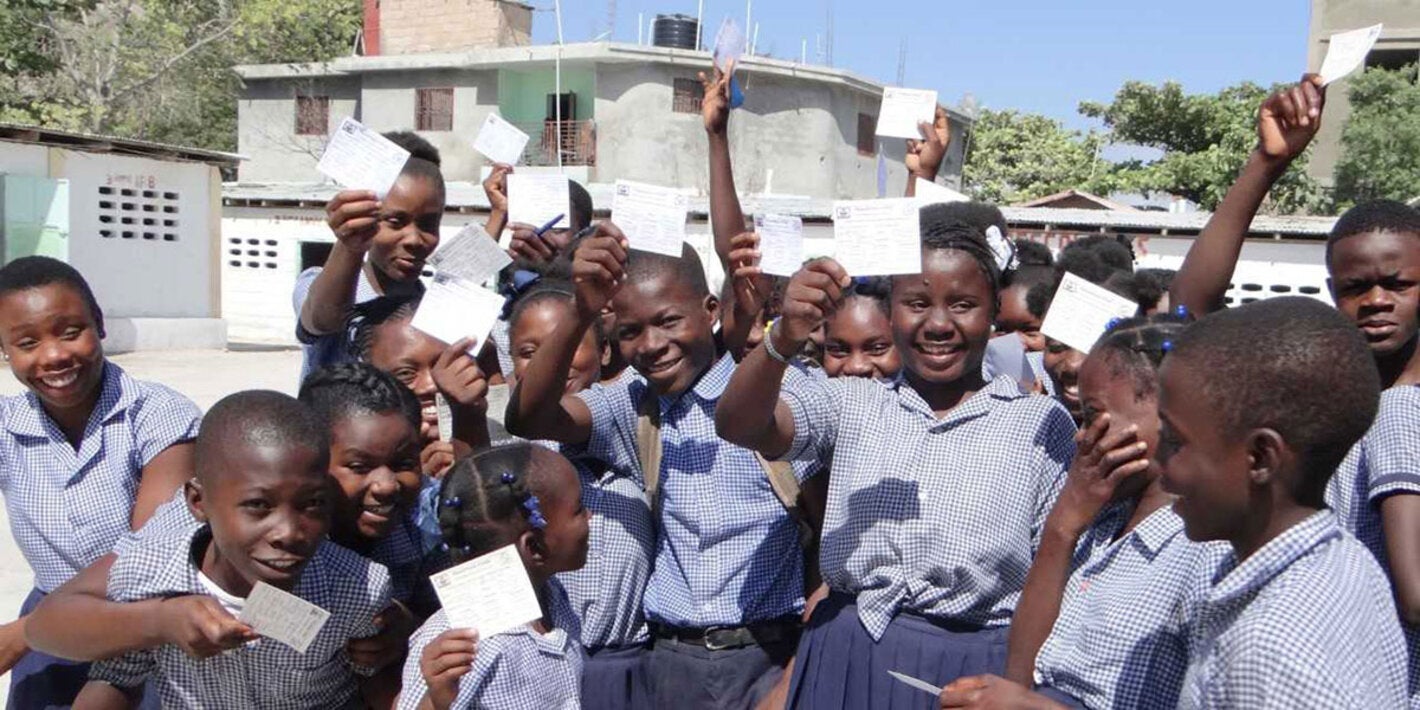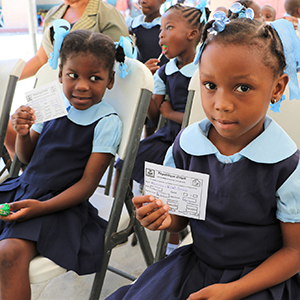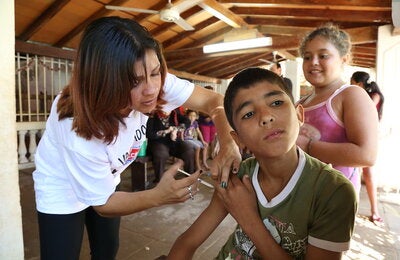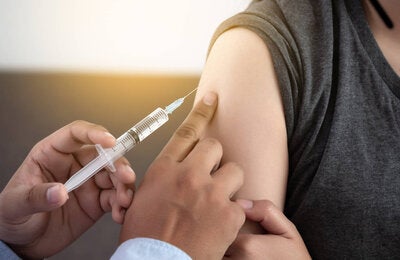
Eleven countries announce plans to strengthen immunization programs following recent measles outbreaks
Washington, D.C, 19 April 2018 (PAHO/WHO) - More than 70 million people will be vaccinated against a variety of dangerous vaccine-preventable diseases during the 16thannual Vaccination Week in the Americas - 10 million more than in 2017. Coordinated by the Pan American Health Organization (PAHO), the campaign, which has taken place each year since 2003 and will be celebrated this year from 21 to 28 April, aims to promote the vital role of vaccination in saving lives.
The slogan for this year's campaign is "Strengthen your defense! #GetVax #VaccinesWork." It was chosen in honor of the 2018 soccer World Cup and seeks to encourage the population in general, and particularly those planning a trip abroad, to get vaccinated in order to strengthen their immune systems and avoid disease.
As part of the Vaccination Week in the Americas celebrations, 11 countries have announced their intention to strengthen measles immunization through the vaccination of 6 million people. The endemic measles virus was eliminated in the Americas but continues to circulate in other parts of the world. However, in 2017, almost 900 new cases were registered in four countries of the region, and during the first few months of this year, 380 new cases were registered in eleven countries.
"Vaccination Week is a great opportunity to unite efforts in protecting the health of the population," said Carissa F. Etienne, Director of PAHO. Vaccination and surveillance are particularly important for the region to ensure that diseases such as measles do not get reintroduced, she added. Since May 2017, PAHO has released several alerts about new measles outbreaks and has called for strengthened efforts to prevent new cases and halt transmission.

As part of the Vaccination Week in the Americas campaign, 14 countries will vaccinate against influenza, 16 will vaccinate against polio, 13 will vaccinate against the Human Papilloma Virus (HPV) and five will vaccinate against yellow fever. Sixteen countries are also planning a series of other public health actions, such as the distribution of Vitamin A and deworming initiatives, in addition to vaccinating.
On 23 April, Cuba will host the regional launch at the Victoria de Girón Institute of Basic and Preclinical Sciences in Havana. Cuban authorities, the Director General of the World Health Organization, Tedros Adhanom Ghebreyesus; and PAHO Director, Carissa F. Etienne, will participate, along with representatives from other countries, UN agencies, and partners.
Launch activities are also planned in Antigua and Barbuda, Argentina, Bahamas, Barbados, Brazil, the British Virgin Islands, Colombia, Curacao, the Dominican Republic, Granada, Guyana, Haiti, Honduras, Jamaica, Nicaragua, Paraguay, Saint Lucia, Saint Martin, Turks and Caicos, and Trinidad and Tobago; several international events are also being planned.
The Region of the Americas is a global leader in vaccination. In 1971, it became the first region in the world to eliminate smallpox. In 1994, the region obtained certification for the elimination of polio, and in 2015, it eliminated rubella and congenital rubella syndrome. In 2016, measles was eliminated from the region, followed in 2017 by neonatal tetanus elimination.
The Americas is also at the cutting edge of new vaccine introduction: 21 countries and territories vaccinate against rotavirus; 30 vaccinate against pneumococcus; and 31 against HPV.
Since the creation of Vaccination Week in the Americas in 2003, more than 720 million people of all ages have been vaccinated against a variety of dangerous diseases. The campaign has proven so successful that in 2012, it inspired the creation of the World Health Organization's World Immunization Week, an initiative that aims to ensure that the entire world is protected against vaccine-preventable diseases.



